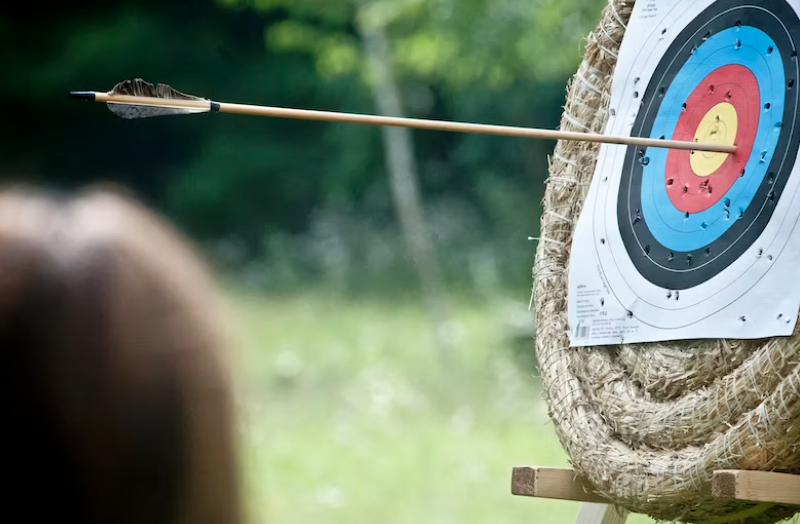Does A Crossbow Have Recoil?
Sep 14th 2023
When it comes to crossbow shooting, one often overlooked aspect is recoil. While crossbows are known for their power and precision, many wonder if they exhibit recoil similar to firearms. In this article, we will take a look into the world of crossbow recoil, examining whether it exists, how it compares to other weapons, and its impact on accuracy. We'll also explore the relationship between crossbow draw weight and recoil.
Unlike firearms, crossbows do not produce a recoil in the traditional sense. Recoil in firearms is the backward movement experienced when a bullet is expelled from the barrel. In contrast, crossbows work on a different principle. When a crossbow is fired, the limbs release stored energy, propelling the arrow forward. This design eliminates the backward force associated with firearms, resulting in a minimal,if not entirely absent, recoil.
What Does Crossbow Recoil Compare To?
To better understand crossbow recoil, it's helpful to compare it to other weapons. In comparison to firearms, crossbows are generally considered to have negligible recoil. Firearms, especially high-caliber ones, produce significant recoil due to the expulsion of gases and the backward motion of the firearm.
Crossbows are more similar in recoil to traditional bows, such as recurve or compound bows. These bows also generate minimal recoil because the force is directed forward, towards the target. However, the sensation of recoil, or lack thereof, can vary from person to person based on their experience and familiarity with the equipment.

Does Crossbow Recoil Hurt?
One of the advantages of crossbows over firearms is that they typically do not cause discomfort or pain due to recoil. The absence of backward recoil means that crossbows are more comfortable to shoot, making them accessible to a broader range of individuals, including those with physical limitations.
While crossbows don't hurt in the same way that firearms with heavy recoil can, it's still important to practice proper shooting techniques and use appropriate safety gear to prevent injuries. Always follow safety guidelines and wear protective equipment, such as gloves and safety glasses, when shooting a crossbow.
Does Crossbow Recoil Affect Your Accuracy?
In general, crossbow recoil has a minimal impact on accuracy compared to firearms. The lack of significant recoil means that crossbow shooters can maintain better control over their aim, resulting in more accurate shots. This is particularly beneficial for hunters and target shooters who rely on precision to hit their mark.
However, like any weapon, crossbow accuracy depends on the shooter's skill level and familiarity with their equipment. Even with minimal recoil, improper technique or jerky movements can still lead to accuracy problems. Consistent practice and proper shooting form are essential for achieving accuracy with a crossbow.

Does Crossbow Draw Weight Affect Recoil?
Crossbow draw weight, which determines the force behind a shot, can indirectly affect perceived recoil. Crossbows with higher draw weights can produce faster arrow speeds and greater kinetic energy. While this doesn't result in more recoil, it can impact the sensation of shooting. Some shooters may perceive crossbows with higher draw weights as having more "kick," although this is not true recoil in the traditional sense.
It's important to note that the relationship between draw weight and perceived "kick" can vary among individuals. What one person considers a comfortable level of draw weight, another might find less manageable. When choosing a crossbow, it's essential to consider your physical capabilities and comfort level to ensure an enjoyable shooting experience.
Conclusion
In the world of shooting and archery, understanding crossbow recoil is vital. Crossbows work differently from guns. Guns push backward when they shoot because of exploding gases, but crossbows use a different system. They push the arrow forward, not backward, which means they usually don't have much recoil, if any at all.
This lack of recoil makes crossbows good for lots of people, including those who might have trouble with the kick of a gun. While some people might feel a little "kick" from the crossbow, it's not like the strong kick of a gun. It's more about how it feels to the shooter than any actual recoil.
When picking a crossbow, it's important to choose the right draw weight, but this isn't really about recoil. It's more about what feels right and works well for you. Understanding how crossbows work and what to expect from them helps you enjoy shooting, whether you're hunting or practicing your aim.



